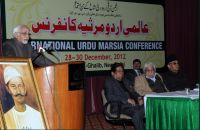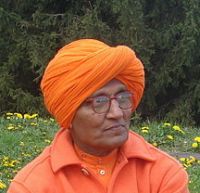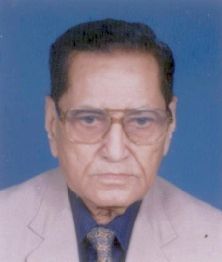 NEW DELHI. The Vice President of India, Hamid Ansari inaugurated the “International Urdu Marsia Conference” on Friday. Addressing on the occasion he said that marsia can be written and heard by heart only. He hoped that the seminar will help in getting more people associated with marsia.
NEW DELHI. The Vice President of India, Hamid Ansari inaugurated the “International Urdu Marsia Conference” on Friday. Addressing on the occasion he said that marsia can be written and heard by heart only. He hoped that the seminar will help in getting more people associated with marsia.
The word ‘marsiya’ is derived from the Arabic word ‘risa’, meaning a great tragedy or lamentation for a departed soul. Marsiya (or elegy), is nearly always on the death of Hasan and Hussain (grandsons of the Prophet Mohammad [PBUH]) and their families, but occasionally on the death of relatives and friends. It is usually in six-lined stanzas with the rhyme ‘aaaabb’.
The recitation of these elegies in the first ten days of Muharram is a common practice.

